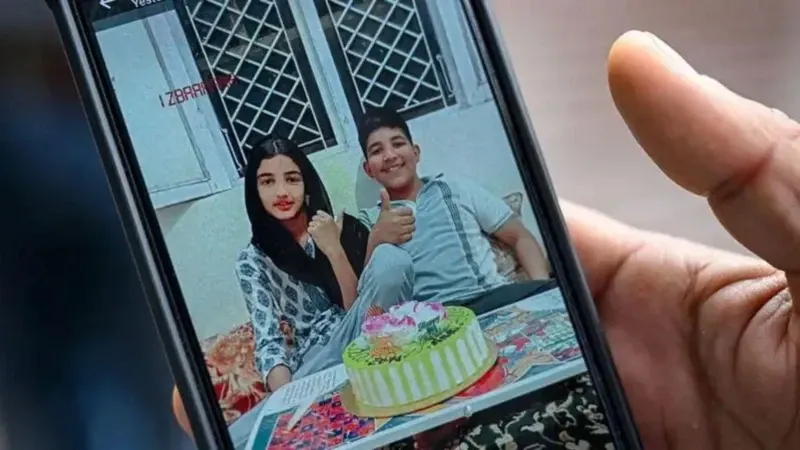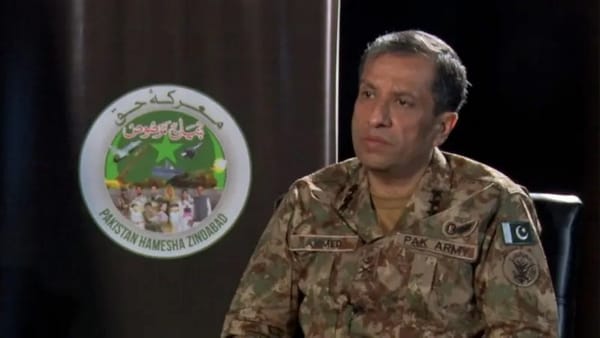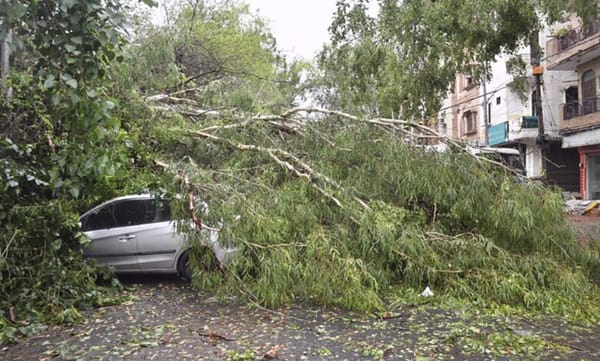Shared Grief Across the LoC: Families Mourn Irreparable Losses Amid India-Pakistan Tensions

“My sister-in-law Nabeela was sitting on a chair in her room when a rocket landed in our courtyard and exploded. The door broke, and a piece hit her near the heart. She died on the spot.”
From May 7 to May 11, dozens of families on both sides of the Pakistan-India border have shared nearly identical stories of pain and sorrow.
Many residents living along both sides of the Line of Control (LoC) witnessed their loved ones dying before their eyes during intense shelling, missile strikes, and drone attacks in just a matter of days.
Our correspondent spoke with several such families on both sides of the LoC who lost their loved ones forever during the recent escalation.
It’s worth noting that after four days of conflict, India and Pakistan announced a ceasefire on Saturday.
According to Pakistan’s ISPR, during the night of May 6 and 7, a strike killed 40 people — including seven women and 15 children — and injured 121 others. Among the wounded were 10 women and 27 children. The Pakistani military lost 13 personnel, while 78 were injured.
On the Indian side, in areas such as Poonch, Rajouri, and Uri in Jammu and Kashmir, 18 civilians — including three children and two women — were killed. During Operation Sindoor, five Indian soldiers also died. In total, India officially confirmed 23 deaths.

Missile Strikes After Attack on Pahalgam
Following an attack on the tourist site of Pahalgam in Indian-administered Kashmir in late April, India launched missile attacks on several cities in Pakistan-administered Kashmir during the early hours of May 6 and 7.
"My Sister-in-law Died on the Spot"
Sardar Javed Razaq from Khoi Ratta, a region in Kotli district of Pakistan-administered Kashmir, lost his wife in Indian shelling during the night between May 9 and 10. She died on the spot after being hit by shrapnel, while their four-year-old daughter was injured.
His brother, Sardar Tahir Razaq, said Javed has since been in a state of shock and absent-mindedness. The little girl hasn’t stopped crying.

“The child cries and screams for her mother. She hasn’t been able to sleep since. We try to comfort her by taking her here and there,” said Tahir.
Describing the night of the tragedy, he said, “It happened on the night between Friday and Saturday. On May 10, there was intense shelling from India on the Khoi Ratta sector. Our village is about seven kilometers from the LoC. We hid in the basement to save our lives.”
“Late at night, the shelling stopped. After Fajr prayers, India resumed heavy shelling. Some hid under cots, others under tables. At around 6:15 a.m., my sister-in-law was in her room when a piece of shell hit her.”
“She died on the spot — there wasn’t even time to get to a hospital. Her daughter, who was sitting in our sister’s lap, was also injured. She needed stitches on her leg.”
"The Eyes of an Eight-Month-Old Search for His Mother"
Another resident of Khoi Ratta, Qamar Shehzad, also lost his wife, Sidra Siraj, in heavy Indian shelling.
Qamar said: “It was around 5:30 a.m. on May 10. Things had calmed down after a night of shelling. My wife went out to sweep the courtyard. As soon as she picked up the broom, a shell hit her, and she died instantly.”
At the time, Shehzad was in the bathroom at the back of the house. He ran out after hearing the explosion and found his wife lifeless on the ground.
He said their eight-month-old son cannot understand why his mother won’t come to him.
“My mother and sisters are taking care of him, but he’s restless. He’s too small to speak, but his eyes keep looking for his mother.”
“We used to think our house was far enough from the border to be safe, but now our hearts are filled with fear.”
"Joy Was at Our Doorstep, Then Grief Shook the Walls"
Usama, a 22-year-old resident of Kotitri Najm in Bagh district of Pakistan-administered Kashmir, also lost his life during the cross-border shelling.
Journalist Naseer Chaudhry spoke with his grieving family.
Usama had been married just days earlier — on April 27. On the night of May 8, while he and his wife were asleep, a loud explosion occurred.
His father, Ishrat, said: “Usama came out of his room and asked, ‘Dad, what was that?’ Just then, another shell hit the house. The ground shook, windows shattered, walls cracked, and Usama, along with his two sisters, was severely injured.”
He was taken to the hospital but didn’t survive.
His father added, “Joy had barely reached our doorstep when sorrow shook our home. I used to hear that losing a child is the worst pain. Now I know — words can’t express it.”

Usama’s mother, Shakeela Ishrat, has not been able to accept her son’s death.
She said, “I hadn’t even removed the wedding garland from my son’s head before he was wrapped in a shroud. The wedding decorations were still up when death moved in. People in the village say this war is between two countries — but we didn’t know what it would take from us.”
Graves of Twin Children in Their Ancestral Courtyard
This blend of grief and fear isn’t limited to Pakistan-administered Kashmir. On the Indian side of the LoC, too, many families live in constant trauma and despair due to the recent conflict.
The attacks from both India and Pakistan left those living near the LoC most vulnerable, as shells landed around their homes. Dozens on both sides lost loved ones during the clashes.

In Poonch, Indian-administered Kashmir, the deaths of 10-year-old twin boys and the injury of their father in cross-border shelling left the entire area in mourning.
Now, in the courtyard of Rameez Khan’s ancestral home lie the graves of his two sons. The house itself remains locked.
For several days, the severely injured father didn’t even know his children had died.
Our correspondent spoke to the children’s uncle, who said that just 10–15 minutes before the tragedy, Ramiz had called and mentioned how frightened the children were.
"I spoke to the children, and one of them said, 'Uncle, can you hear the sound of shelling over the phone?' I reassured them and told them to come to Surankot with their uncle. Later, I spoke to Ramiz again, who was loading the car with the kids and belongings when a shell hit, instantly killing the children and leaving Ramiz severely injured."

“Whether War or Ceasefire – Our Children Won’t Come Back”
Is this kind of tension a regular part of life, or was this incident a first in the area? Ramiz’s brother said:
“We’ve never seen anything like this before. It feels like this war is specifically targeted at our home—because we lost our children to it.”
“Even if there are clouds at night now, we get scared. There is an atmosphere of fear. There is no peace.”
After nearly four days of fighting between India and Pakistan, both countries finally announced a ceasefire on Saturday.
However, for the family of Ramiz, living in the town of Poonch near the Line of Control in India-administered Kashmir, the ceasefire announcement came too late.
Our correspondent also spoke with Maria, the sister of Ramiz's wife Arusa.
Maria Khan is mourning the loss of her nephew Zain Ali and his twin sister Arwa, who were killed on May 7 due to cross-border shelling.
Recalling that day, she said:
“Like every other day, on May 6, Zain and Arwa returned home from school, did their homework, played a bit, ate dinner, and went to sleep. Before dawn the next morning, we heard the sounds of firing and explosions just a few kilometers away.”
Maria said everyone in the house panicked and hid, waiting for a close relative to arrive and help.
“My sister Arusa held her daughter Arwa’s hand, and Ramiz held Zain. Just as they stepped out of the house, a shell exploded nearby. The shrapnel fatally wounded 10-year-old Arwa, and she died on the spot, while Zain was thrown far away by the blast.”
“My sister kept calling his name. When he was finally found, a stranger was giving him CPR—but Zain could not be saved.”
Severely injured and unconscious, Ramiz Khan was rushed to a local hospital in Poonch but due to his critical condition, he was transferred to another hospital in Jammu city, four hours away.
“After Operation Sandur, What Mission Will Be Launched for Us?”
Amerik Singh, a resident of Poonch, was also among those who lost their lives due to the shelling.

His brother said that when the shelling started in Poonch city, Amrik quickly tried to gather the children and move them to a deep basement on the ground floor from the upper floor. During this process, a shell hit his chest, killing him on the spot.
Amrik Singh used to run a shop to earn a living.
Amrik Singh's daughter said:
“We couldn’t save him. He wanted to save us. He thought, 'Let me save my children.' Who knew it would all happen within two minutes?”
“A mission was launched for justice for the victims of the Pahalgam attack. Now what mission will be launched for us? Only those who have lost someone from their home can truly understand the pain.”
According to the report, a Gurdwara building in Poonch city was also damaged by the shelling on May 7, though thankfully no one was inside at the time.
“It Was Like Doomsday for Us”
Despite the ceasefire announcement, the people living near the Line of Control continue to live in fear and uncertainty.

Shehzad from Khoi Ratta said:
“Even now, people are so terrified that if a door slams shut, it feels like a blast. There’s no sleep at night, and no peace during the day.”
“It was like doomsday for us. My sister-in-law also died, our house was destroyed, and those who survived are so mentally shattered that they neither eat properly nor sleep peacefully. The situation is deeply disturbing.”
“The Government Should Have Warned Us First”
After the shelling on May 7, hundreds of people from Poonch and nearby border areas fled to safer locations. With the ceasefire in place, they are now slowly returning.
Maria said:
“The government should have warned the people living near the border in advance. If we had been alerted, we could have moved to safety—perhaps our children would still be alive.”
“If war is necessary for the country’s safety, we support it. We also mourn the Pahalgam attack. But the lives of people living near the border must also matter. Are we not human? War or ceasefire—our children are not coming back.”




